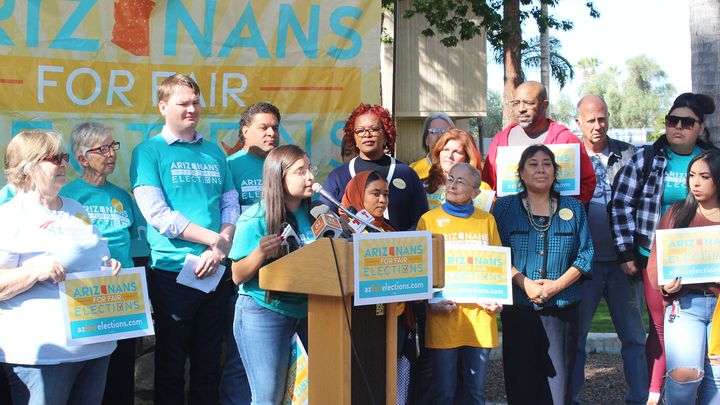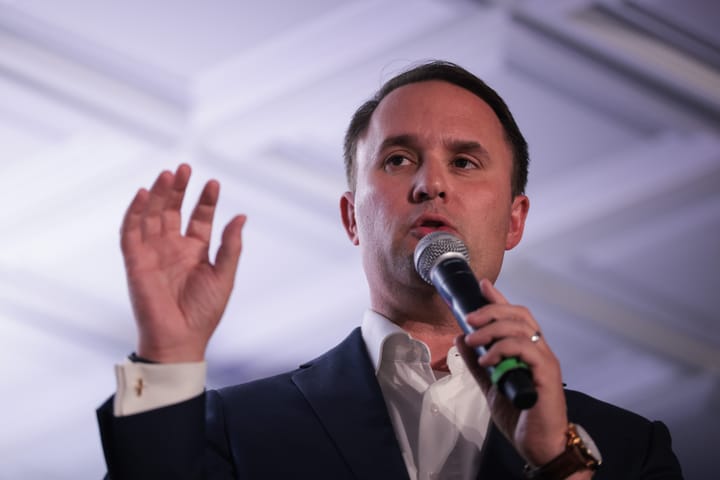The coronavirus pandemic isn’t just disrupting big presidential campaign rallies and fundraisers, it’s also having seismic effects on one of the most small-d democratic processes at the state and local levels—gathering signatures to put citizen-initiated measures on the November ballot.
In Michigan, where the campaign finance and lobbying laws are filled with loopholes, earning the state an “F” in the Center for Public Integrity’s survey of the systems in place to deter corruption, a group of activists and nonprofits calling itself the Coalition to Close Lansing Loopholes kicked off an effort last year to fix the state’s ethics laws by putting a constitutional amendment on the 2020 ballot. But in late March, as the need for social distancing to slow the spread of the coronavirus caught on, the organizers determined they would not be able to collect enough petition signatures and started looking ahead.
“COVID-19 has disrupted lives across the country and world and has significantly altered face to face interaction,” the coalition wrote in a press statement. “This has made the already difficult task of collecting more than 425,000 signatures to put lobby reform on the ballot in 2020 a relatively impossible one. It’s clear from our volunteer signature gathering efforts that people across Michigan are ready for transparency in government and robust lobbying reform and we aim to make that a reality in 2022.”
The Michigan effort is not the only campaign finance-related ballot measure campaign that is facing challenges from the coronavirus pandemic. In Arizona, organizers working on a similar initiative halted volunteer and paid signature collection efforts on March 18 in order to comply with social distancing guidelines.
“With COVID-19 spreading quickly in Arizona, we didn’t see a way to continue circulating without putting the health and safety of our circulators and Arizonans at risk,” Anabel Moldanado, an organizer with Arizonans for Fair Elections, told Sludge. “We are almost halfway to the qualification goal, but still have a significant amount of work to do in order to ensure we have a sufficient buffer. With a July 2 deadline looming, not being able to be in the field poses a serious threat to our efforts.”
Like Michigan, Arizona’s laws have deficiencies that enable corporations and interest groups to exert undue influence on the government without consistent and complete disclosure.
A 2013 analysis of lobbying records by Arizona Capital Times found that the vast majority of lobbying is reported in a way that does not reveal the nature of the spending and the lawmakers who benefit from it. Arizonans for Fair Election’s ballot measure would address this by closing a loophole that allows lobbyists to withhold these details from their disclosure reports when they are tied to events in which all members of the legislature are invited.
The measure would also enact automatic voter registration, lower campaign contribution maximums for local and state politicians, strengthen public campaign financing options for candidates, ban more types of gifts from lobbyists to legislators, lengthen the “cooling off” period requiring former legislators to wait before becoming lobbyists, and more.
While the petition signature gathering work of ballot initiative campaigns has been frozen in place by the pandemic, a national group set up to support them is looking at ways for how to move forward. The Ballot Initiative Strategy Center (BISC), a nonprofit that works with progressive ballot campaigns, is helping groups assess options on a state by state basis, including policy and legal action.
“There is precedent for temporary changes to election processes during emergencies like natural disasters,” BISC Executive Director Chris Melody Fields Figeuredo told Sludge. “We always think about the long term impact and want to ensure whatever tactic is taken to address the current crisis does not set a bad precedent or harm communities of color and other marginalized communities.”
On Thursday, Arizonans for Fair Elections filed a lawsuit along with a health care reform ballot initiative campaign asking for an temporary, emergency rule change allowing them to collect signatures electronically using an online verification system that is already used by candidates in Arizona running for state office.
“If the online verification system is secure enough to put candidates on the ballot, then it’s secure enough to put initiatives on the ballot, too,” said Joel Edman, the executive director of the Arizona Advocacy Network, a nonprofit that is backing the ballot measure.
“We protected the public from COVID-19 by halting our signature collection, and now we want to protect the public a second time by ensuring the people of Arizona have a full opportunity to have their voices heard on Election Day,” Moldanado said, regarding the lawsuit.
In Alaska, a ballot measure that would increase campaign finance transparency and establish rank-choice voting reached the petition signature thresholds and was verified on March 9 by the state’s lieutenant governor to appear on the November ballot. In Oregon, the November ballot will include a legislatively referred constitutional amendment to permit the enactment of laws by the state and local government to regulate money in politics, including limits on expenditures and disclosure requirements.



